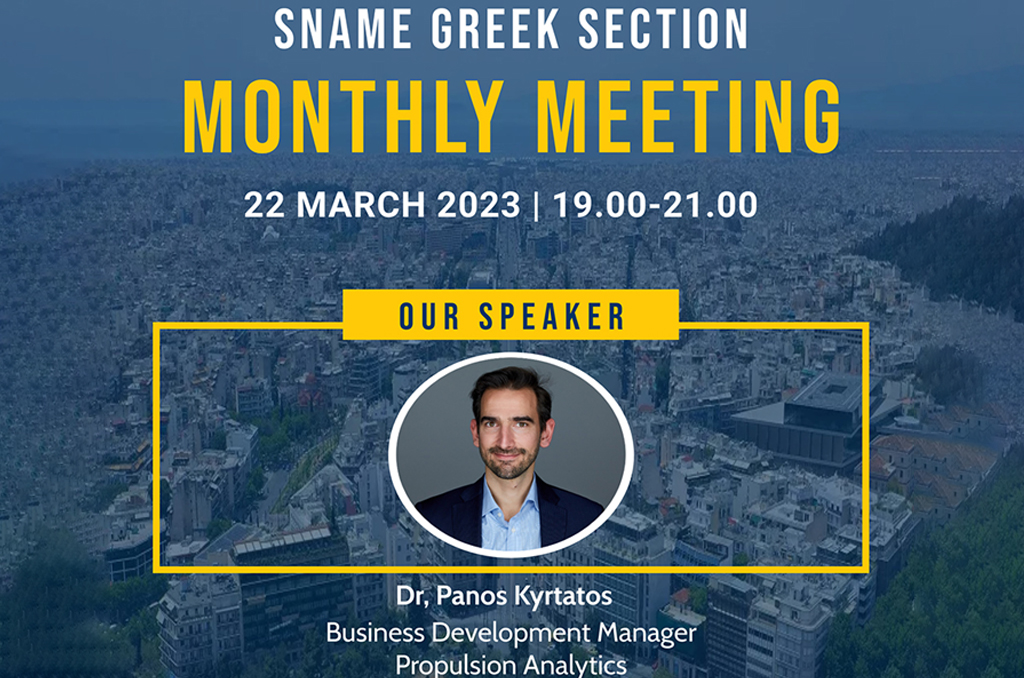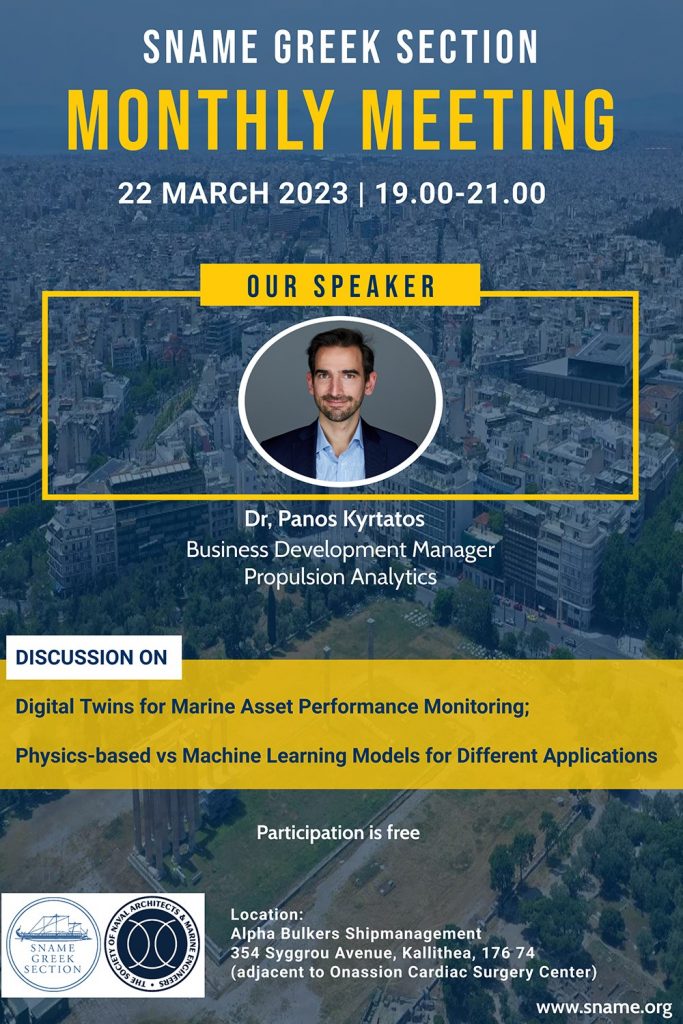17/03/2023
SNAME – Wednesday 22nd of March, 19:00-21:00 – Propulsion Analytics


17/03/2023
SNAME – Wednesday 22nd of March, 19:00-21:00 – Propulsion Analytics

We would like to bring to your attention below presentation of Dr. Panos Kyrtatos, Business Development Manager of Propulsion Analytics, at SNAME Greek Section Monthly Meeting on Wednesday 22nd of March, 19:00-21:00.
Participation is FREE to all, subject to RSVP.
VENUE:
ALPHA BULKERS SHIPMANAGEMENT (click here for location)
354 Syggrou Avenue, Kallithea, 176 74
(adjacent to Onassion Cardiac Surgery Center)

Digital Twins for Marine Asset Performance Monitoring;
Physics-based vs Machine Learning Models for Different Applications
Summary
Digital Twins, i.e. mathematical representations of the operation of an asset, are used extensively in many engineering applications. In the maritime sector, digital twins of engines and vessels are used for performance monitoring, performance predictions, fault diagnostics, and performance-related decision support.
There are two main schools of thought concerning the methodology used for constructing digital twins; the traditional approach is based on analytical, physics-based, or empirical models, which try to replicate the operation of the asset under different conditions. On the other hand, an approach that has spread widely over the last decade uses machine learning on continuous operation data, to build accurate representations (profiling) of the asset. Unfortunately, these two different modeling approaches are often considered universally applicable solutions and supported dogmatically, while in reality, each type of modeling is more appropriate for different applications, depending on different factors such as the precision of analytical models, the complexity of the asset operation, the data availability and the prediction accuracy required.
In this presentation, Dr. Panos Kyrtatos will try to elucidate which type of models are most appropriate for performance monitoring of different maritime assets and provide concrete examples of cases where digital twins have aided in fault diagnostics of marine engines and vessel performance-related decision-making.
About the Speaker
Panos was born in 1986 in Athens, Greece. He studied mechanical engineering at Imperial College London, and did a PhD at ETH Zurich until 2013, focusing on combustion and engine modelling. He continued at ETH Zurich until 2019, holding different positions such as Research Group Leader and Lecturer. In 2016 he co-founded the ETH Spin-off company Vir2sense GmbH, which provides virtual sensors for monitoring and controls in the marine and power generation sectors. Between 2020 and 2021 he concluded an Executive MBA at IMD in Lausanne. He joined Propulsion Analytics in 2021, where he holds the position of Business Development Manager.